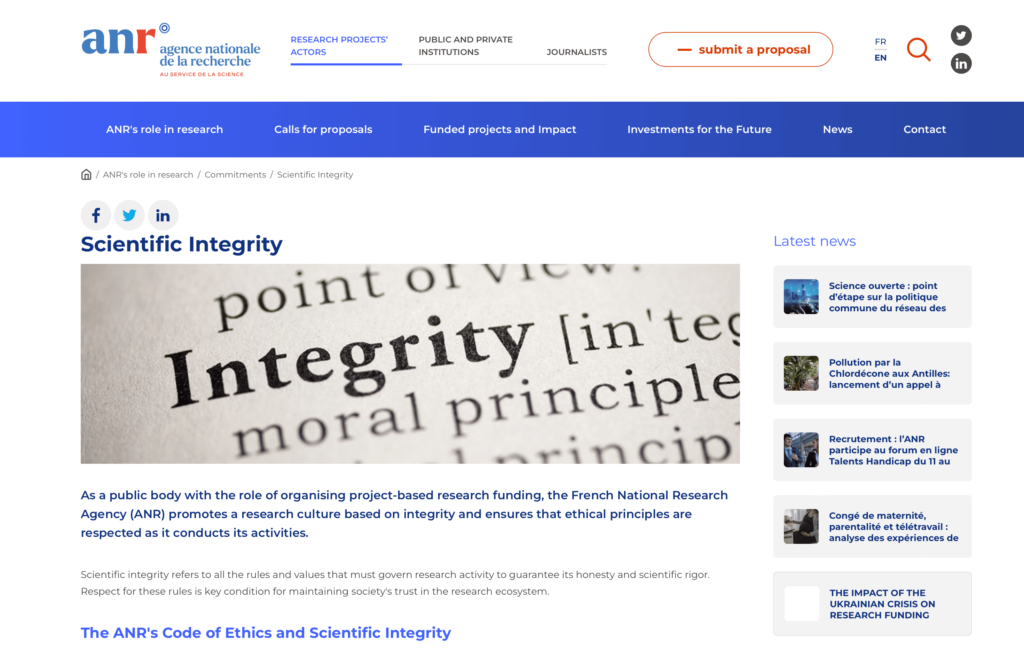Applicants understand how funding decisions are made, because the Agency openly shares a general summary of its decision-making process on their website written in English and French. Research impact analysis is based on the principles outlined in DORA and the Leiden Manifesto. For the 2019 Generic Call for Proposals, an awareness and training program has been announced to educate program chairs and to encourage consideration of other outputs of research in addition to research articles. Gender parity, geography, and affiliation are all paid close attention to as the Scientific Panels are assembled for each thematic call.
For the Agency’s main call for proposals, it breaks the review process into two stages, which rely on two types of independent experts, those engaged in a Panel review process, and those conducting independent reviews. In the initial stage of review, pre-proposals reduce the administrative burden on the applicants and reviewers alike. Summaries of the Panel’s decisions are sent to the coordinators of each project. Before review of the full proposals in the second round, the Panels’ composition can be adjusted to account specifically for the scientific themes in the proposals. At least two external independent reviews are solicited for each proposal. After this, comments from the reviewers are sent to scientific coordinators, who have the opportunity to comment if they find inaccuracies in the reviews. The Panel members assigned to each proposal then review both the external reviews and coordinators’ comments, and present a summary at a plenary meeting. Decisions are made collectively at a plenary meeting. The Panel ranks the best projects, and also makes a supplementary list of projects eligible for funding in the case that co-funding becomes available or if budgets are reallocated.
The ANR has also made a public pledge to reduce gender bias in their selection procedures. They began with statistical analyses of gender representation in proposals submitted vs. those funded in 2014-2016, and then also analyzed the issue of unconscious gender bias in their own review panels. The results of a literature review and an internal review indicated that parity in Scientific Evaluation Panels is “not enough to reduce this bias.” To address the root causes of biased selection of grantees, they have set up a “training and awareness process for committee chairpersons” which focuses on the question of gender in selection bias and parity within committees and consortia.
Additional information:


